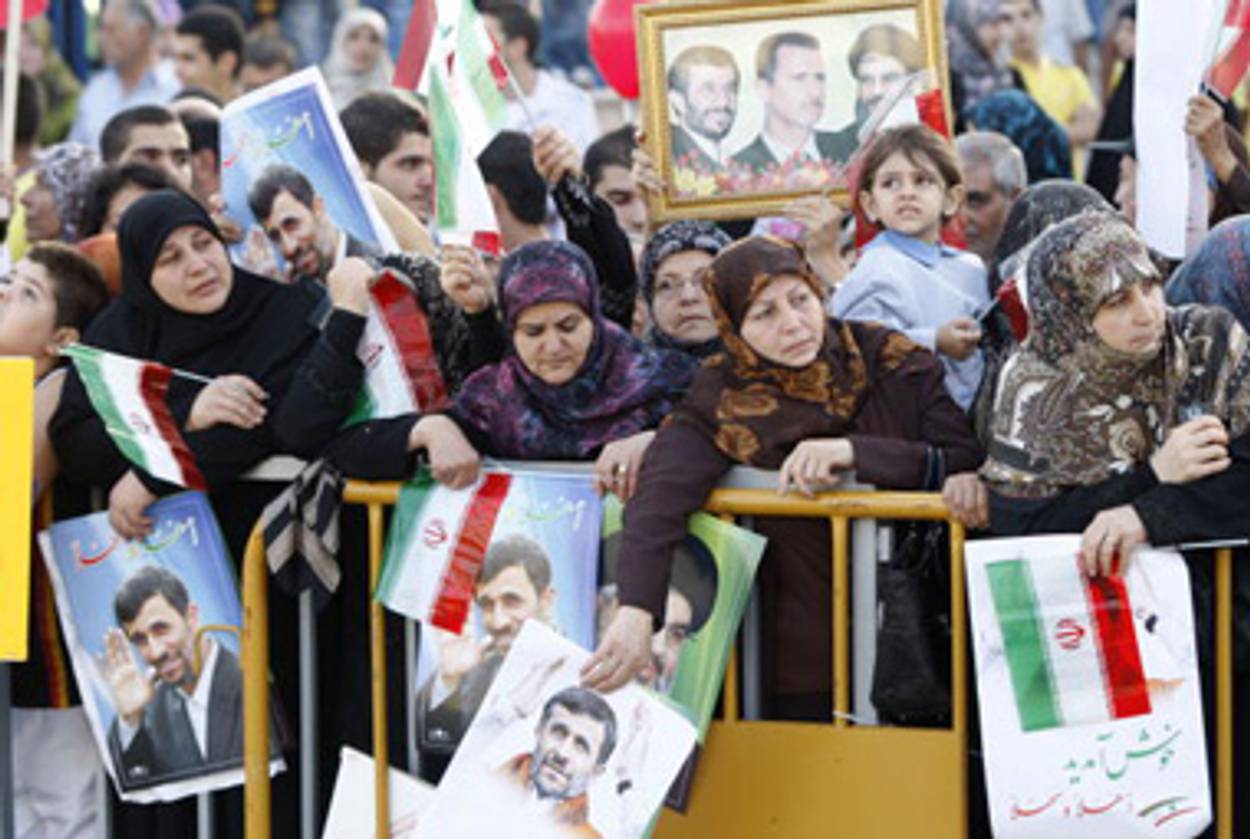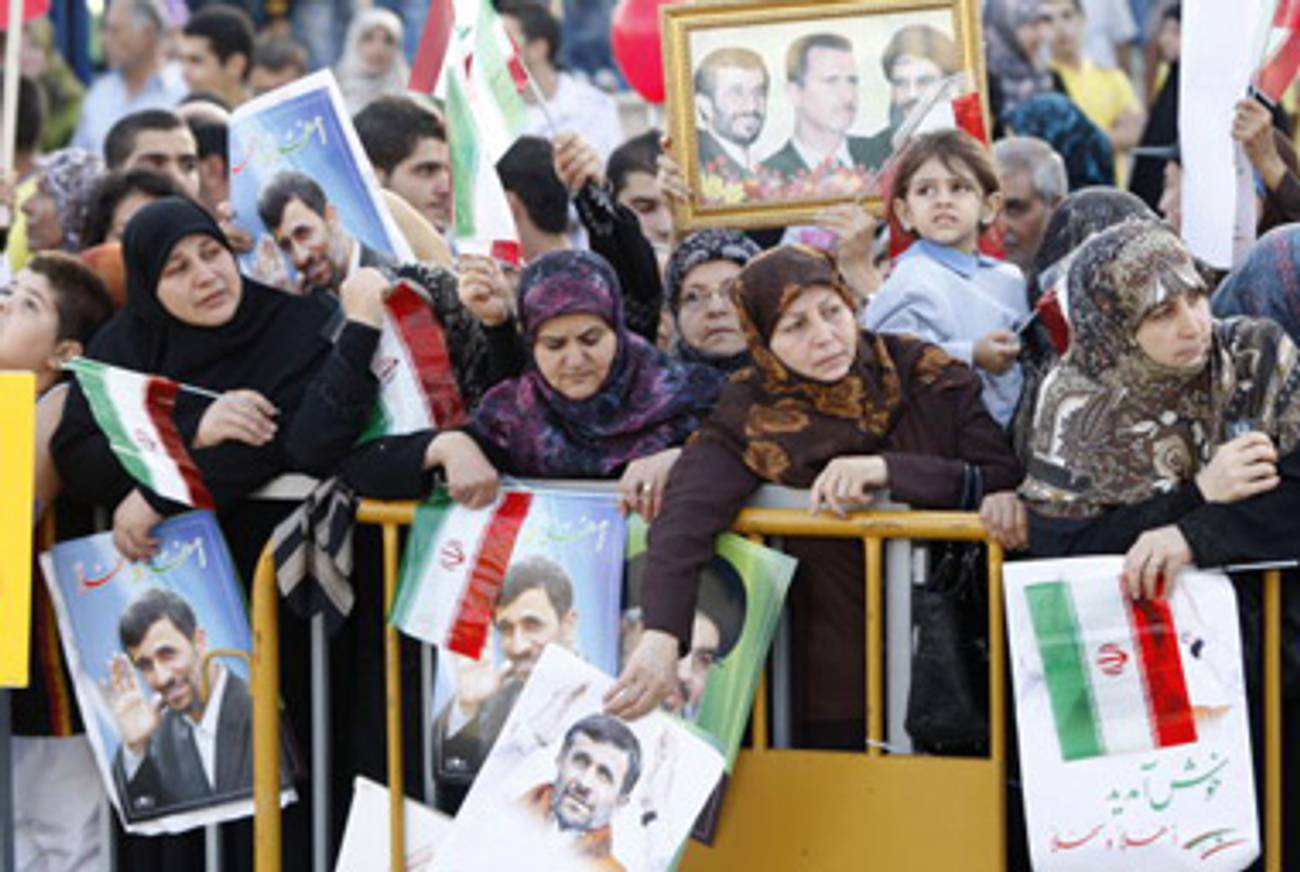In Lebanon, Ahmadinejad Gets Mixed Reviews
Shiites applaud, others suspect




A U.S. diplomatic spokesperson’s understatement yesterday was so pronounced, he was almost being wry. On the occasion of Iranian President Mahmoud Ahmadinejad’s first-ever state visit to Lebanon, where he was thronged by thousands of supporters in a predominately Shiite southern suburb of Beirut, the spokesperson said the United States has “strong suspicions about the motives of Iran and its—you know, the groups that it supports who do not have Lebanon’s long-term interest at heart.” Of course, part of the problem, as Tablet Magazine Mideast columnist Lee Smith has argued, is that these “groups”—chiefly the Shiite militia Hezbollah—are arguably already in Lebanon’s driver’s seat.
But while members of all sects and political parties attended Ahmadinejad’s welcoming luncheon, a letter signed by 250 Lebanese politicians and activists played a different melody. “One group in Lebanon draws its power from you,” it argues—that would be Hezbollah again—“and has wielded it over another group and the state. You are repeating what others have done before you by interfering in our internal affairs.” Average persons-on-the-street also have mixed emotions about Ahmadinejad’s visit (well, except for average Shiite persons-on-the-street—they like him). “It’s a complete disaster for Lebanon. We have had a lot of foreign countries want to use us in their games, but Iran is definitely the worst,” a Sunni woman told the Wall Street Journal.
Whether or not Iran is the worst, it certainly has a use for Lebanon. A provocative new article from the Asia Times columnist Spengler (who I’m told bears a striking resemblance to Tablet Magazine contributor David P. Goldman) argues that Iran’s alliance with Hezbollah and its short-range, low-accuracy missiles in southern Lebanon will only increase in strategic importance as Iran, which functions largely on stolen (and therefore highly vulnerable) software, continues to suffer economic damage due to Western hacking efforts.
So the United States has spoken out, Lebanese activists have spoken out, and even average Lebanese citizens have spoken out. Yet most Israeli officials, with a few exceptions (including the rule-proving one of Opposition Leader Tzipi Livni), are staying quiet (one IDF official did cannily refer to Ahmadinejad as “a man who is not Arab”). “We don’t need a campaign, because Mahmoud Ahmadinejad is creating a negative PR campaign for himself,” an Israeli diplomat said. “The Lebanese are this first to understand the severe ramifications this visit has for their country. We have no reason to intervene.”
Ahmadinejad Draws Large Crowds, Wary Officials in Lebanon [LAT]
U.S.: We Suspect Iran Doesn’t Have Lebanon’s Interest at Heart [Haaretz]
Lebanese Opinions Differ on Ahmadinejad Visit [WSJ]
What Really Bugs Iran [Asia Times]
Israel Silent Ahead of Ahmadinejad Visit to Lebanon: ‘He’s His Own Worst Enemy’ [Ynet]
Related: Cinders of Lebanon [Tablet Magazine]
Earlier: Iran: Stuxnet Isn’t Harming Nuclear Weapons Program
Marc Tracy is a staff writer at The New Republic, and was previously a staff writer at Tablet. He tweets @marcatracy.